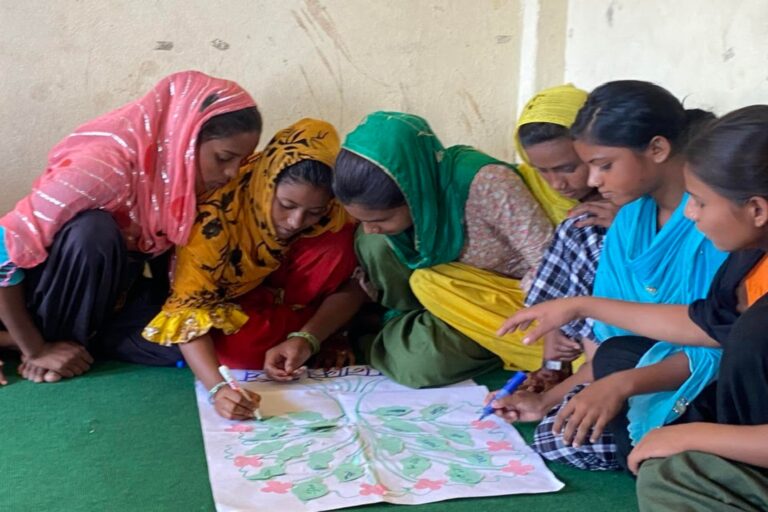Limon B. Rodriguez is a doctoral candidate in international affairs with a specialization in development economics at the Johns Hopkins School of Advanced International Studies (SAIS).
Tensions emerge between, on the one hand, labor shortages in higher-income countries in a range of sectors and, on the other hand, a general societal reluctance to allow greater levels of immigration. The search for a policy approach to labor shortages that benefits both migrants and sending countries has bedeviled policymakers. However, new experiments show that with the right policy innovations, firms in the destination country, migrant workers, and the government of the source country can benefit from labor mobility.[1] This article will discuss Professor Michael Clemens’ policy innovation in the education-migration nexus, the Global Skills Partnership (GSP)—particularly the Pilot Project Addressing Labour Shortages through Innovative Labour Migration (PALIM) between Morocco and Belgium. The information presented in this article is based on my field research and interviews in these countries.[2]
Morocco has a total labor force of nearly 12 million people and has among the highest shares of foreign workers in Belgium.[3],[4] Meanwhile, Belgium has a labor force of 5 million people. Amid a significant skill shortage in the information and communications technology (ICT) sector in Morocco and Belgium’s Flanders region, in 2019, the two countries’ governments created a new project, PALIM, to train unemployed non-ICT college graduates in Morocco to help fill the gap in both countries.[5],[6] As of June 2020, 120 workers have been trained primarily in ICT and soft skills.[7] To date, only one to two trainees are coordinating with a Belgian employer to begin their employment there, but the project’s stakeholders hope that more trainees will join the Belgian labor market.[8],[9]
Unlike previous migration models, which tend to focus on the skill needs in the destination country, GSP—on which PALIM is based—introduces “home” and “away” tracks whereby trainees are equipped with skills in shortage in both source and destination countries, respectively, to be absorbed by either labor market. The Belgian development agency, Enabel, managed the collaboration with the Moroccan government’s National Agency for the Promotion of Employment and Skills (ANAPEC), the Flemish Service for Employment and Vocational Training, and Moroccan and Belgian firms and industry associations, with training conducted by a local provider, Mindtech. How does PALIM address financing, training for skilled workers, accrual of gains to Morocco beyond financial remittances, and temporary economic migration more broadly?
Direct Stakeholder Engagement Helps Meet Skill Requirements
While individual firms in Morocco hired some of the participants after the training because of ANAPEC’s outreach, the involvement of industry associations in job recruitment was rather limited.[10] I recommend that governments directly engage with domestic firms—including through co-creation of training modules, provision of practitioner trainers and training feedback, internships, and mentoring—as Moroccan firms were only involved through their industry associations. Such engagement will better align training programs with skill requirements and increase the number of trainees that get hired. This would lead to more meaningful participation from firms and their industry associations throughout the project—from design and the determination of eligibility criteria and skill profile to recruitment and selection, training, and evaluation.
PALIM can also improve its engagement with Belgian employers to better understand the skills they need their workers to have. As labor flows to Belgium, the ongoing recovery from the COVID-19 pandemic provides a litmus test of whether trainees’ skills meet the requirements of Belgian employers. The training seems to have mostly met the skill needs of Moroccan employers, though they also identified key areas for improvement.[11],[12] PALIM and future GSPs can learn from the Digital Explorers partnership between Nigeria and Lithuania in the ICT sector and World Bank’s pilot project between Morocco and Germany in the tourism sector, which are considered to have connected well with employers.[13],[14],[15] In fact, the latter attracted participation from several German firms. Because of ANAPEC’s role as a labor market intermediary in this pilot, it is well positioned to apply the project’s best practices—including pre-departure training with language and cultural classes, and feedback to trainers—to future GSPs.[16]
Similarly, involving the trainer in the design can help create a quality training institution. After Mindtech is provided with high-level training modules, it would be well placed to undertake key actions, such as providing feedback, developing prerequisite sub-modules, consulting experts on course development, and selecting practitioner trainers who can best allocate time for each module.
Managing the Risk of Domestic Skill Shortages Involves Trade-offs
PALIM took a multifaceted approach to correct the negative externality caused by the emigration of workers who had received public education. First, the European Union (EU) funded the training. Had the government of Morocco fully funded the reskilling of those who would work abroad, it would have led to an acute skill shortage and fiscal drain at home. Second, building a stock of ICT workers for “home” and “away” tracks can improve the supply of domestic skills for the following reasons: some trainees work in Morocco; those who would migrate to Belgium could return with improved human and financial capital, social networks, and ideas; and investments in human capital would increase due to higher expected returns on ICT skills.[17],[18],[19] Third, partnering with Moroccan industry associations ensures that not only Belgians but also domestic employers could hire the trainees. Fourth, adjusting the training eligibility from unemployed ICT to non-ICT college graduates can further lower the risk of acute domestic skill shortage. Further, to manage public opinion in Morocco, the project’s leaders articulated a narrative focused on the demand for skills and the goal of unemployment reduction.[20] The strategy seems to be working; the Moroccan public has not expressed opposition to the project thus far.[21]
While the project might have succeeded in managing public opinion, it has come at the cost of making reskilled workers less attractive to employers.[22],[23]A more recent GSP between Belgium, Morocco, and Tunisia attempts to carefully thread this trade-off. This trilateral GSP requires applicants to hold diplomas that more closely match employers’ educational requirements.[24] Whether this would improve employment outcomes is an area for future research. Additionally, GSPs should consider collaborating with academia, think tanks, and multilateral institutions to conduct research that would provide empirical evidence on the effects of migration on labor market outcomes in destination countries, similar to recent studies carried out in Australia.[25] Such research could help guide governments’ communication strategies and potentially muster broad support for GSPs from the local population.
Co-investments Can Promote Financial Sustainability
PALIM received €1.5 million from the EU through its Asylum, Migration, and Integration Fund and Mobility Partnerships Facility, which is managed by the International Centre for Migration Policy Development.[26] While training in Morocco is more cost-competitive than in Belgium, this funding model may not be financially sustainable for future GSPs. Thus, policymakers should pursue a co-investment strategy. For instance, in another GSP, Australia Pacific Training Coalition (APTC), financial co-investments by partners—such as individual firms, industries, and Pacific Island governments—reached AU$291,000 for 2019, besides funding from Australia’s Department of Foreign Affairs and Trade (DFAT).[27] Additionally, APTC, DFAT, and the government of Solomon Islands agreed to provide an additional AU$9 million for development of skills and technical and vocational education and training (TVET) system between 2019 and 2022.[28] TVET partners also provided in-kind contributions, including training venues, transportation, food, internet access, and administrative support.[29]
The maritime industry also co-invests in worker training. For instance, Philippines-headquartered Magsaysay Group, a large supplier of sea manpower in Asia, provides facilities and equipment, while employers in destination countries fund the specialized training.[30] If employers share the cost of training in future GSPs, employment bonds are an option to recoup investments. To help convince stakeholders to co-invest, positive externalities across the firm (e.g., improved productivity) and in the community (e.g., reduced incidence of domestic violence) as well as the inclusion of poor and vulnerable groups (e.g., women and persons with disabilities) need to be monitored and evaluated rigorously and reported regularly.
“Home” and “Away” Tracks Can Help Weather Shocks
PALIM takes a developmental approach to labor mobility such that reskilled unemployed college graduates would be absorbed by the Moroccan (“home”) or Belgian (“away”) labor market, both of which share skill shortages in ICT. This approach can help increase employment, especially in Morocco, where unemployment among college graduates remains high at 18 percent.[31]The “home” and “away” tracks can also function as a risk management mechanism during shocks. Nothing puts that to the test better than the economic shock caused by the COVID-19 pandemic.
In the early stages of the pandemic, which coincided with the training, virtually no trainee was able to work in Belgium.[32] The Moroccan labor market, however, picked up the slack: 41 percent of the participants who completed the training were working as of March 2021.[33],[34]. I am currently completing an impact evaluation to analyze whether the training had a causal effect on the participants’ employment status outcomes. Meanwhile, the domestic work experience trainees have accumulated will further improve their prospects for labor mobility. As stated earlier, one to two trainees are in the process of coordinating their employment in Belgium, where wages are higher, and it is expected that more trainees will follow suit.[35],[36]
Monitoring Changes to Skill Requirements Helps Ensure Training Relevance
Regarding the common shortage in ICT skills, an earlier study found that skill requirements in the ICT sector are rapidly changing such that employers’ needs might have changed by the end of the training.[37] In Morocco, however, I found that there may be changes in demand for technology versions (e.g., from Angular 11 to 12) but not for technology itself (e.g., Java) even during the COVID-19 pandemic. An analysis of job advertisements from a sample of participating Belgian employers, albeit non-representative, suggests ICT skill requirements may not be changing as frequently as I expected (Figure 1).[38]
Figure 1. Python and Java remain the two most in-demand programming languages among select participating employers in Belgium; SQL and Go followed behind and merely switched spots between July 31 and November 27, 2022.

Source: Author’s calculations, using data from the government of Belgium and participating Belgian employers, accessed July 31-November 27, 2022.
Note: Twelve other programming languages and technologies were also included in the analysis and represented, on average, 48 percent of job advertisements in Belgium, with each technology’s share ranging between 1 percent and 8 percent.
If future GSPs also target the ICT sector and experience rapidly changing skill requirements, I recommended an agile approach to training—which can include regular feedback sessions with employers, interns, data scientists, and those pursuing self- and independent study—to flag these changes and to anticipate skill requirements and shifts over the medium term.
A Policy Innovation to Shape the Future of Education and Labor Mobility
PALIM is the first project in Europe to adopt the GSP model.[39] Although key challenges—such as integration, scalability, and the possibility of reducing irregular migration—remain, as I continue to analyze GSPs further, I am discovering that their potential to shape the approach to labor mobility in Europe and beyond is only growing stronger.
Works Cited and Notes
[1] Michael Clemens, “Effects of Skilled Migration on Origin Countries[Lecture],” Migration Policy and Economies, February 17, 2022, Georgetown University, Washington, DC, United States of America.
[2] This article is based on my ongoing doctoral thesis at Johns Hopkins University School of Advanced International Studies (SAIS). I am grateful to my advisors at SAIS and Georgetown University School of Foreign Service (SFS), Professors Devesh Kapur and Erwin Tiongson, respectively, for comments and suggestions on earlier drafts. I am also thankful to my other professors and advisors, Professors Michael Clemens (Georgetown University SFS; George Mason University Department of Economics effective January 2023) and Ritam Chaurey (SAIS); Helen Dempster of the Center for Global Development; Enabel; and the government of Morocco for the opportunity to conduct my research on PALIM and GSPs more broadly.
[3] World Bank, “World Development Indicators DataBank,” World Development Indicators, October 14, 2022, https://databank.worldbank.org/source/world-development-indicators#.
[4] Acerta, “Diversity and Inclusion in the Job Market,” April 5, 2022, https://www.acerta.be/fr/blog/employeurs/diversite-et-inclusion-sur-le-marche-de-lemploi?utm_source=socialseeder&utm_medium=link&utm_campaign=diversit%C3%A9.
[5] Enabel, “PALIM – European Pilot Project Linking Moroccan ICT Development and Labour Shortages in Flanders,” Enabel – Belgian Development Agency, November 15, 2019, ugent.be/re/epir/nl/afdelingen/publiekrecht/onderzoek/migratierecht/bijlagen/enabelen.pdf.
[6] Center for Global Development (CGD), “Pilot Project Addressing Labour Shortages through Innovative Labour Migration Models,” June 30, 2021, https://map.gsp.cgdev.org/2021/06/30/pilot-project-addressing-labour-shortages-through-innovative-labour-migration-models-palim/.
[7] Massimiliano Di Tota, and Rostane Hamdi, “Final Review of the Intervention: Pilot Project Addressing Labour Shortages through Innovative Labour Migration,” 2019.
[8] Government of Belgium, Interview on PALIM by Limon B. Rodriguez, June 24, 2022a.
[9] Government of Belgium, Email on PALIM, June 21, 2022c.
[10] Government of Morocco, Interview on PALIM by Limon B. Rodriguez, June 20, 2022b.
[11] Federation of Moroccan Employers (CGEM), Interview on PALIM by Limon B. Rodriguez, June 20, 2022.
[12] ICT Firm, Interview on PALIM by Limon B. Rodriguez, June 14, 2022.
[13] The project seeks to fill skilled worker shortages in Lithuania’s ICT sector by arranging paid employment or traineeships for Nigerian ICT specialists in Lithuanian ICT companies.
[14] Labor Mobility Partnerships Manager, Interview on APTC by Limon B. Rodriguez, November 8, 2022.
[15] Manjula Luthria, Interview on APTC by Limon B. Rodriguez, September 23, 2022.
[16] Manjula Luthria, Interview on APTC by Limon B. Rodriguez, September 23, 2022.
[17] Government of Morocco, Interview on PALIM by Limon B. Rodriguez, June 23, 2022a.
[18] Devesh Kapur, “Political and Social Impact of International Migration: National[Lecture],” International Migration, Diasporas, and Development, October 18, 2021, Johns Hopkins University, Washington, DC, United States of America.
[19] Devesh Kapur, “Political Effects of International Migration,” Annual Review of Political Science 17, no. 1 (2014): 479–502, https://doi.org/10.1146/annurev-polisci-043010-095807.
[20] Government of Belgium, Interview on PALIM by Limon B. Rodriguez, June 17, 2022d.
[21] Government of Morocco, Interview on PALIM by Limon B. Rodriguez, June 17, 2022c.
[22] Government of Belgium, Interview on PALIM by Limon B. Rodriguez, June 24, 2022b.
[23] ICT Firm, Interview on PALIM by Limon B. Rodriguez, June 14, 2022.
[24] Government of Morocco, Interview on PALIM by Limon B. Rodriguez, June 23, 2022a.
[25] See, for example, Jarrod Ball, Gabriela D’Souza, and Henry Sherrell, “Effects of Temporary Migration: Shaping Australia’s Society and Economy,” 2019, https://www.ceda.com.au/ResearchAndPolicies/Research/Population/Effects-of-temporary-migration.
[26] CGD, “Pilot Project Addressing Labour Shortages Through Innovative Labour Migration Models.”
[27] APTC, “Australia Pacific Training Coalition Annual Report 2018-2019,” APTC Publications, 2020, https://www.aptc.edu.au/publications.
[28] APTC, “Australia Pacific Training Coalition Annual Report 2018-2019.”
[29] APTC, “Australia Pacific Training Coalition Annual Report 2018-2019.”
[30] Doris Ho, Interview on Labor Mobility Partnerships by Limon B. Rodriguez, August 16, 2022.
[31] Morocco Higher Commission of Planning, “Unemployment in Morocco Drops to 11.2% in Second Quarter of 2022,” August 4, 2022, https://www.moroccoworldnews.com/2022/08/350621/unemployment-in-morocco-drops-to-11-2-in-second-quarter-of-2022.
[32] Government of Belgium, Interview on PALIM by Limon B. Rodriguez, June 24, 2022a.
[33] Pre-recruitment internships and self-employment are included here.
[34] Christine Flamand, “Socio-Economic Analysis of PALIM,” Louvain: Catholic University of Louvain, March 2021.
[35] Government of Belgium, Interview on PALIM by Limon B. Rodriguez, June 24, 2022a.
[36] Government of Belgium, Email on PALIM, June 21, 2022c.
[37] Di Tota and Hamdi, “Final Review of the Intervention: Pilot Project Addressing Labour Shortages through Innovative Labour Migration.”
[38] Further validation is ongoing over the next few months.
[39] CGD, “Pilot Project Addressing Labour Shortages Through Innovative Labour Migration Models.”




